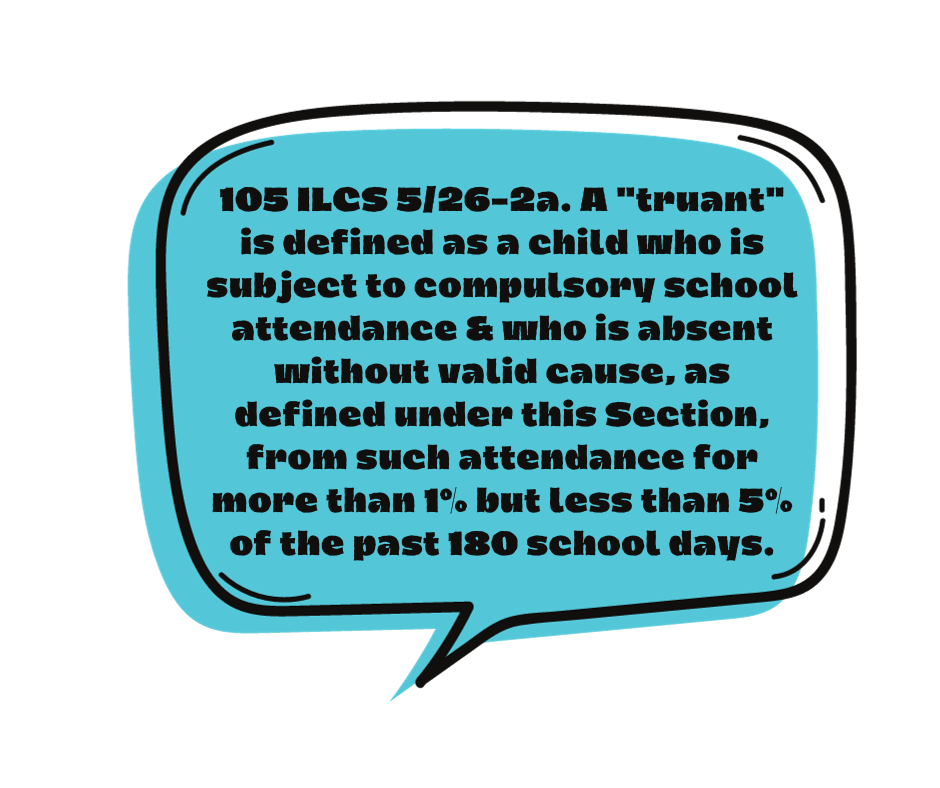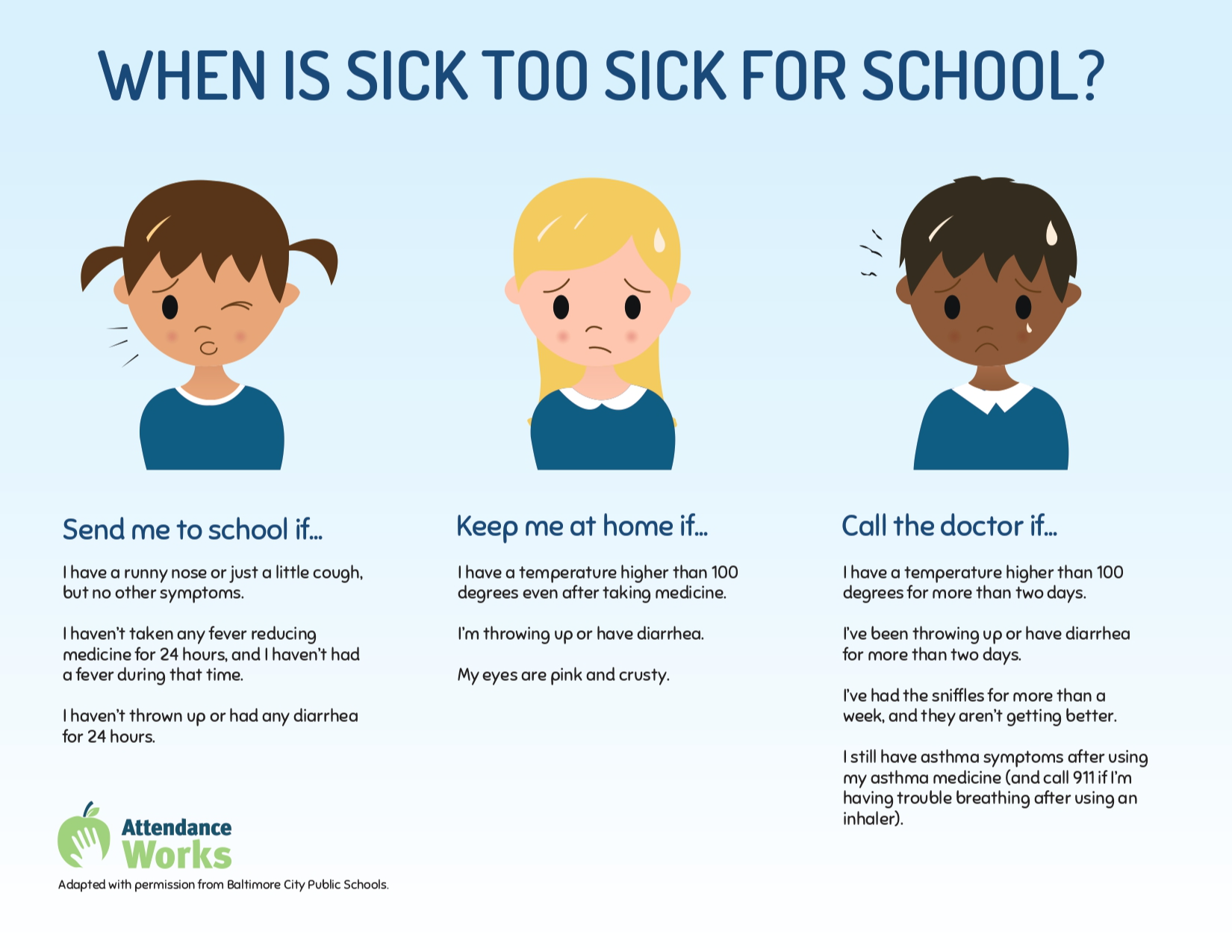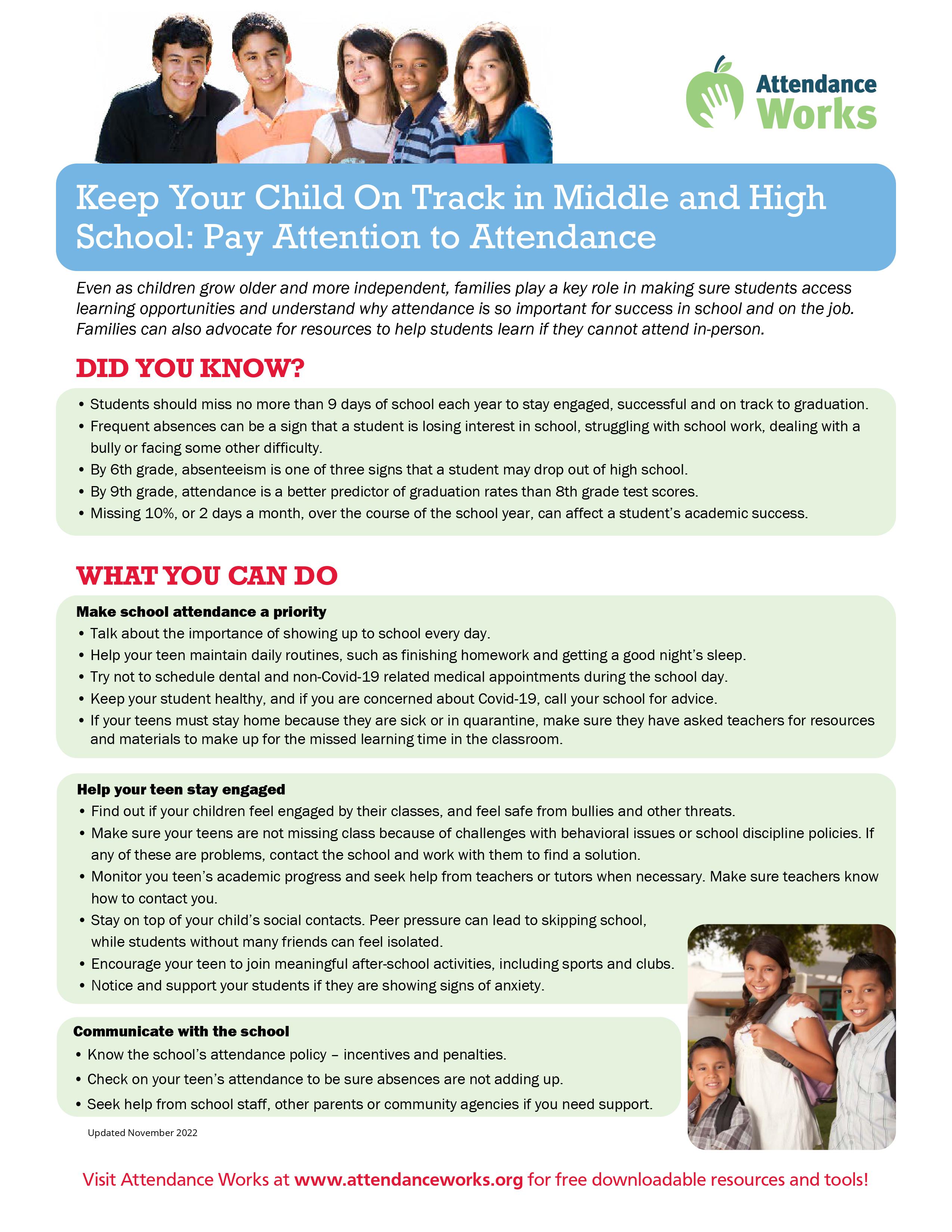
What is Truancy?
Truancy refers to a student being absent from school without a valid cause (unexcused absence). Illinois School Code has outlined a valid cause as illness, doctors appointments, religious obligations, death in the family, family emergency, and other reasons that are documented & accepted by the school district's policy. Once a student accumulates a certain number of unexcused absences, they are defined as chronically truant. Schools will take action to reduce absences, which can include meetings with the truancy officer &/or legal repercussion.

Throughout the school year, monthly/bi-monthly meetings will be held to discuss students who are struggling with attendance and what we may do to curb this behavior. In addition to the building attendance team and Truancy Specialist, truant students and their parents can be included.
Step 1 -The school district will identify students who have shown a pattern of missing school without valid cause. If interventions by the school have not been successful, the Regional Office of Education will send a letter to the parent(s)/guardian(s). A Truancy Specialist will make contact with the parent(s)/guardian(s) and have them review and agree to sign an Individual Service Plan to assist the student and family. Specialists will maintain communication, monitor attendance and provide resources as needed. Students will be reported to the Illinois State Board of Education at this time. School personnel will continue with in-building interventions.
Step 2 - If chronic absences continue, the parent(s)/guardian(s) will be notified by mail of a “roundtable” style meeting to be held to address the truancy in depth, explore support services, interventions and a plan for improved attendance. Anyone with a vested interest (ie. social workers, teachers, nurse, principal, superintendent, SRO, etc.) will be invited to attend as this will be our last attempt before legal steps are taken. Specialists will continue to monitor and make contact with the parent(s)/guardian(s). School personnel will continue with in-building interventions.
Step 3 - If truant behavior continues, the Regional Office of Education will submit a petition to the State’s Attorney's Office (SAO). The State’s Attorney may file charges against either the parent(s)/guardian(s) or the student. Truancy is a Class C misdemeanor. Penalties may include fines up to $1,500 and up to 30 days in jail. Students can be detained at the Juvenile Detention Center for up to 30 days.



